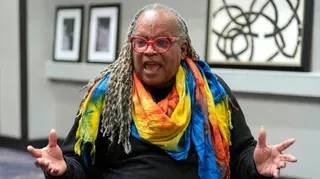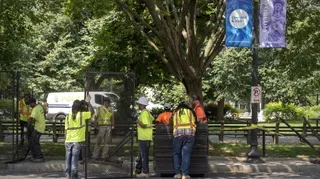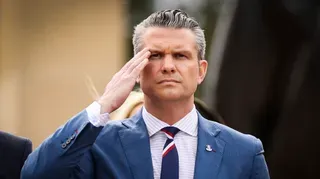February 11, 2010
Miami activist aids Haiti recovery efforts
Joseph Erbentraut READ TIME: 3 MIN.
When EDGE last spoke with journalist and Unity Coalition member Vanessa Brito, she was preparing to leave for Haiti to serve an advisory role with a United Nations mission in the earthquake-ravaged country.
Though she had anticipated the tragedy she would witness on the ground, Brito said the earthquake's effects were far worse than she had ever thought.
"There is absolutely no emotional preparation you could possibly have to face the kind of things you see when you get there," she told EDGE.
And "there" in Brito's trip actually did not turn out being Haiti. Just prior to her departure, direct flights into the country had been cut off, meaning she went to Santo Domingo in the neighboring Dominican Republic instead. Though miles from the quake's epicenter, Brito described the devastation she and travel partner Connie Hobbs encountered as heartbreaking. While assisting workers in two orphanages and a clinic over the course of three days, she said it was difficult to prevent her emotions from bubbling to the surface.
"I don't think I expected to feel the way I did there: The orphanages and hospitals were completely overwhelmed with children and families," Brito said of the experience. "It was very difficult to see someone who doesn't have a right hand, doesn't have a family, doesn't have a home. Someone who doesn't know what will happen to them tomorrow or two months from today."
One 14-year-old boy Brito met left a particularly somber impression she will not soon forget. The boy, who lost his entire family, had been dropped off at an orphanage and left there with a shattered right leg as he awaited surgery. After the boy endured a leg amputation and other surgeries, she came to the boy's side and asked whether he was happy to be alive.
"He said he didn't know," Brito said. "He hadn't been eating, and was so miserable. To see a child with his whole life ahead of him lose everything and not even know the language of where he's staying... All he can do is cry. And he was just one person there - there were many others like him. That made it very real for us."
Though originally disappointed she was not able to enter Haiti itself, Brito's experience in the Dominican orphanages highlighted to her the earthquake's magnitude. Haiti's neighbor, also a nation with widespread poverty, must now find a way to cope with a wave of earthquake refugees who in most cases are not able to work and do not have legal standing there.
Admitting she had difficulty enjoying meals following her trip, Brito will return to the region this weekend for a second mission, along with more supplies, as part of an ongoing relief effort. This time, she plans to accompany a convoy directly into Haiti with the Global Action Foundation. While she focused on some higher-end surgical equipment and supplies like wheelchairs on her first mission, she said the new focus will be on basic first-aid supplies - bandages, aspirin, saline solution, syringes - and food, which still remains a major issue for survivors subsisting on a diet of mostly rice. Many babies still do not have any milk they need to survive.
Brito said she was disappointed by the lack of presence from LGBT organizations in Haiti. While the tragedy has mostly disappeared from the top echelon of national news stories, she emphasized the destruction there will take years to repair, particularly as the region enters the rainy season, with many survivors living under sheets.
"It would be nice if there was a big group of [the LGBT community] there getting our hands dirty, to show we care beyond what affects us directly," Brito said. "This tragedy affects us all."
Brito hoped LGBTs would continue to keep Haiti on their radar, and she encouraged them to continue to donate to non-governmental organizations already on the ground. The Miami-based LGBT Community Response to the Crisis in Haiti Fund continues to accept donations, as well as the Rainbow World Fund.
"Even as the interest has died down, we have to realize this is going to be years of reparations in the effort to rebuild an entire society that is basically handicapped," Brito added. "A couple of bags of canned food won't solve the problem. This has to be a long-term effort and we need to participate in building a contingency plan rather than giving now and forgetting later."
Joseph covers news, arts and entertainment and lives in Chicago. He is the assistant Chicago editor for The Huffington Post. Log on to www.joe-erbentraut.com to read more of his work.







